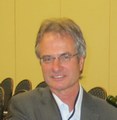“Wetland Conservation in the Okanagan is a workshop for municipal and regional stakeholders,” states Neil Fletcher, Chair, Wetlands Stewardship Partnership

“Wetlands can provide a number of benefits to society, including: flood control, water treatment, and carbon storage. This workshop will explore gaps and opportunities on how we can protect and conserve wetlands and work towards healthier watersheds. Topics were selected to support key municipal and regional staff and lead conservation groups who are working in the Okanagan. In particular, the afternoon session on stormwater management will provide a more detailed look at one aspect of integrating wetlands into watershed planning,” stated Neil Fletcher.










